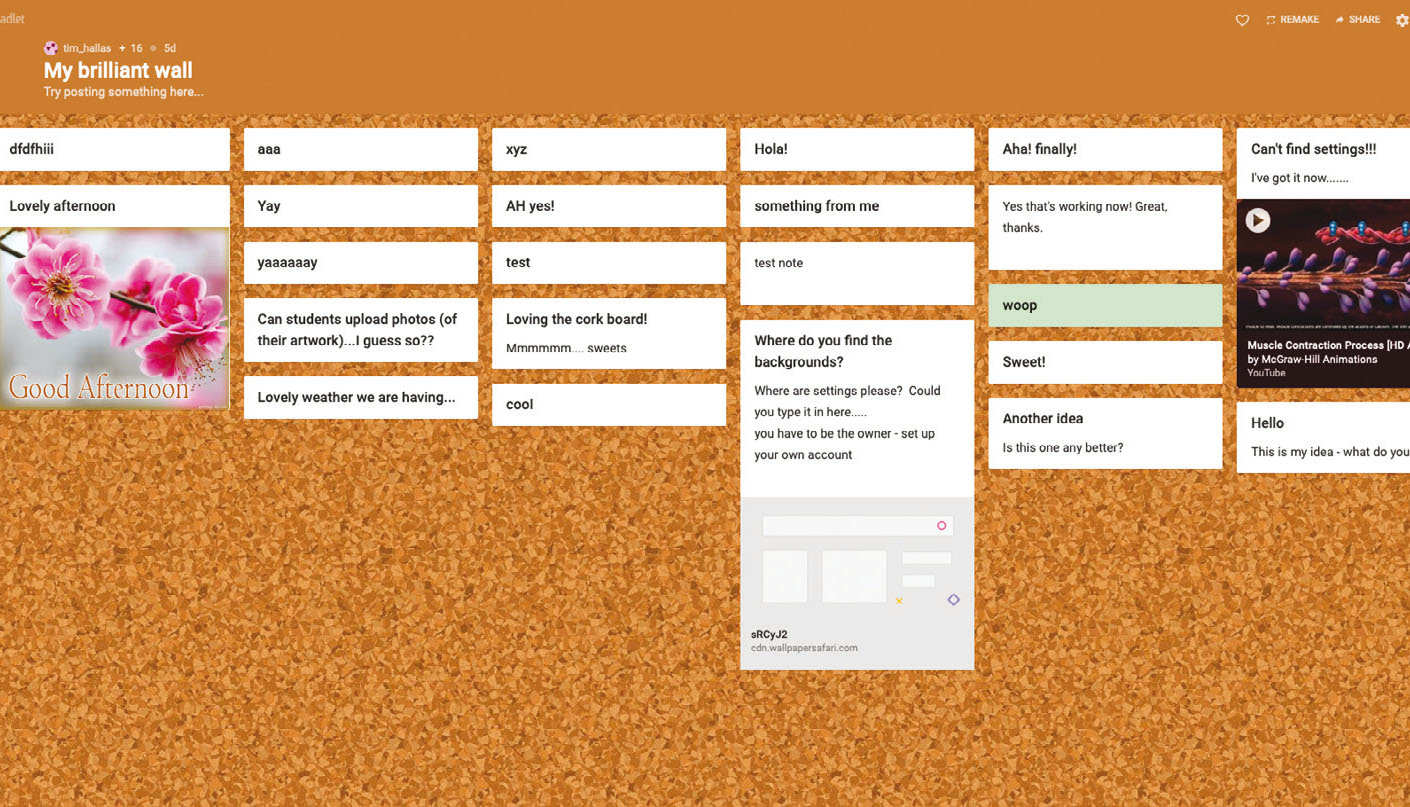
As the last issue of MT was going to press, it was announced that the schools were to close and I hurriedly rewrote my column to reflect that. Since then, online teaching has become my – and everybody else's – norm. Some pieces of tech and certain teaching techniques have been more successful than others. Here, I reflect on what has worked – and what hasn't – and suggest possible next steps.
Online chat
The most effective tool I've found for working with my classes is a simple online text chat. Our college is using Microsoft Teams, but this function also works in Google Classroom and even Zoom if you aren't in a school or college. The advantage of text, over large video and audio calls, is that it creates a record of what has been asked over time. I've tried video and audio and there only seem to be two outcomes: I either get a wall of noise as everybody's mics are on and the screen jumps between people talking, or I get them to all disable their microphones and I find myself lecturing. This didactic approach doesn't work for my teaching style, so I've either combined me talking with them asking questions via the text chat or using the text chat entirely. My students have informed me that this relatively simple approach has resulted in some of the easiest lessons to follow.
Performing music remotely
One of the hardest things to accurately do over the Internet is perform music – as many of you will have discovered. This is much easier to understand when you consider what is happening – you create some music, it's then converted to a digital signal, sent through the Internet, processed by the receiving device and turned back into analogue signal, heard by the people you're performing with, they join in and the whole process is reversed. The fact that this takes place in milliseconds is, frankly, impressive. But those milliseconds make all the difference between coordinated performance and a mess. Simply singing Happy Birthday for someone the other day was hysterical because nobody could work out who to follow.
However, you may have seen these lovely videos appearing of musicians all performing together remotely and wondered how they've done it when it's so difficult to even sing Happy Birthday. Well… my new lockdown activity has been learning how to edit video and I've now made a few of these films myself. Let me tell you… it's long and complicated! It involves someone recording a guide track that is sent to all of the other musicians who then perform along to it while listening to the guide track. These guide tracks are then accumulated, and someone then spends a lot of time synchronising them, mixing them together and editing the multiple videos. This might be something that you could do with your students – you don't actually need high-tech recording equipment: most people record using their phones. You will need some form of editing software – a lot of companies are giving away temporary licences for things like this during lockdown (see p54 for other tech lockdown freebies).
For recitals and instrumental lessons, a simple video call is probably all that is needed. The delay in listening to each other isn't a problem. The only real consideration is that the person performing needs to have a copy of the accompaniment at their end to ensure that everything is nicely in time. Any meeting platform will work: Skype and Zoom are perfectly functional for this.
Online collaboration
One tool that I have found particularly useful during this period of remote teaching is an online collaboration document. There are many versions of this – Google Docs, Microsoft OneNote etc. My personal favourite is a website called Padlet. This might well be familiar to many of you, and I've been using it for years in the ‘real’ classroom, but it's been great for online teaching, too.
Padlet is basically an virtual pinboard that allows students to all share something and then learn from each other. The website is aimed at the education market and is therefore nice and secure. Working together like this also helps with marking – there's only one thing to mark and it can then be returned to everybody at once!

Pin it to win it: Padlet is an online pinboard
Summary
Hopefully you'll have had a successful few weeks away from the physical classroom and your experiences have mirrored mine. Starting out without really knowing how the sessions were going to go, but getting ever more confident with what technology will work when. If you've had a harder time, perhaps some of these ideas might help you if we're still in lockdown by the time this is published! As always, if you ever need support with any of this stuff, do contact me via the magazine.








